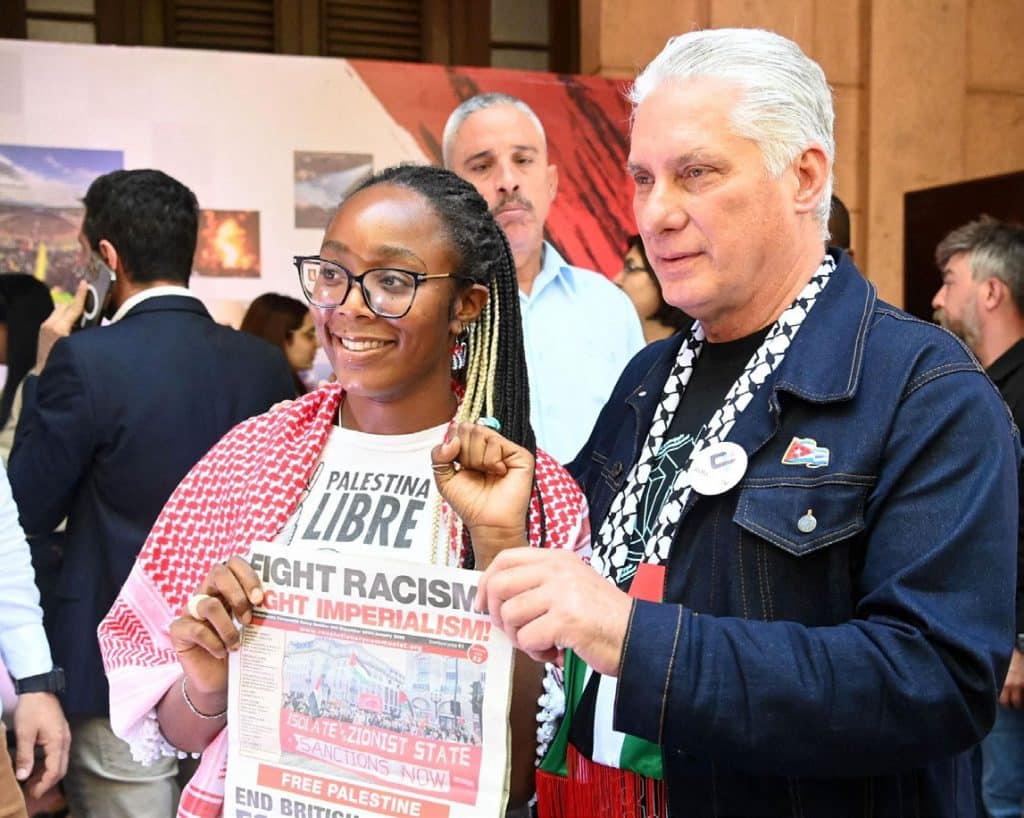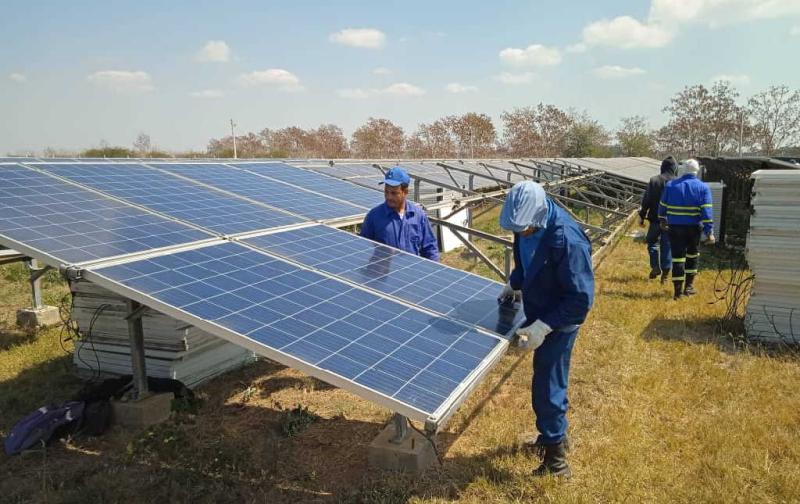On 21 February 2025, Cuba took a huge step forward in its renewable energy programme by opening its first photovoltaic solar park in Havana. This facility is the first of 92 planned solar parks, with 55 expected to be operational by the end of 2025, adding approximately 1,200 megawatts (MW) to the National Electric System (SEN). This initiative aims to reduce Cuba’s reliance on imported fossil fuels and counter the effects of genocidal US blockade, which has hindered the island’s access to energy resources and its modernisation of the electrical grid.
Cuba’s energy sector has suffered from ageing infrastructure and dependence on imported fuel, making it vulnerable to supply disruptions. In March 2025, the failure of Cuba’s largest powerplant led to a nationwide blackout. Cuban Minister of Energy Vicente De la O Levy explained that the lack of fuel to generate electricity is a direct result of the genocidal US blockade which relentlessly works to make daily life insufferable for Cubans. He continued on to highlight the severe challenges in importing gas and oil, due to difficulties in completing international payments saying, ‘This is what happened with the liquefied petroleum gas ship, which was docked for almost a month [before unloading]’. Although the Cuban state prioritised energy to vital sectors to ensure they remain open, the blackout highlighted the decentralised and aged nature of the system and the need for a more sustainable alternative.
The US blockade has always severely impacted Cuba’s ability to modernise its energy infrastructure. This was exacerbated under Donald Trump’s 2016 administration, when 243 additional sanctions, actions and measures were unilaterally imposed on Cuba by the US, including 56 directly targeting the energy sector. One of these sanctions stipulated that any equipment containing 10% or more parts from a US company or subsidiary could not be sent to Cuba without a licence. These restrictions have limited Cuba’s access to fuel, spare parts, and technology, forcing the country to seek alternative solutions to rebuild its energy system.
To overcome these challenges, the Cuban government is prioritising renewable energy, particularly solar power, reducing the island’s dependence on oil and fuel imports. The focus on solar parks and renewable alternatives align with the revolutionary Cuban government’s 100-year state plan, Tarea Vida (Life Task), which protects the population and the island from the worst impacts of climate change. Cuba, which contributes only 0.06% of global CO2 emissions, is forced to bear the brunt of this environmental destruction. Partnering with China has been crucial in providing Cuba with advanced solar technology despite US sanction measures.
The newly inaugurated solar park in Havana has a capacity of 21.8 MW and is expected to generate 37 gigawatt-hours of electricity annually. This will save approximately 8,100 tons of diesel fuel each year, strengthening Cuba’s energy security and reducing greenhouse gas emissions. The park consists of over 42,000 solar panels and more than 1,600 support structures. Cuba plans to complete all 92 solar parks by 2028, contributing more than 2,000MW to the SEN. This will contribute towards Cuba’s goal of generating 37% of its electricity from renewable sources by 2030, reinforcing its commitment to sustainability and energy independence.
The solar energy initiative has also mobilised the Cuban youth. Members of the Union of Young Communists have actively participated in the construction and promotion of renewable energy projects, demonstrating the role of young people in shaping Cuba’s sustainable and socialist future.
While capitalist nations suffer from worsening energy crises and environmental destruction caused by corporate greed, Cuba’s socialist planning prioritises human need over profit. The inauguration of the first photovoltaic park is not just a technological achievement but a statement of defiance against imperialist aggression and the strengthening of socialism. Despite economic hardship and sanctions, Cuba proves that socialist planning and internationalism can pave the way for a sustainable future.
Destinie Sánchez

An FRFI comrade with the President of Cuba, Miguel Diaz-Canel: FRFI participated in the VI International Patria Coloqui conference in Havana on 19 March. The event brought together over 400 activists and journalists from 47 countries to consider how media can be used to promote anti-imperialist struggles across the world and combat growing far-right tendencies.
FIGHT RACISM! FIGHT IMPERIALISM! 305 April/May 2025




